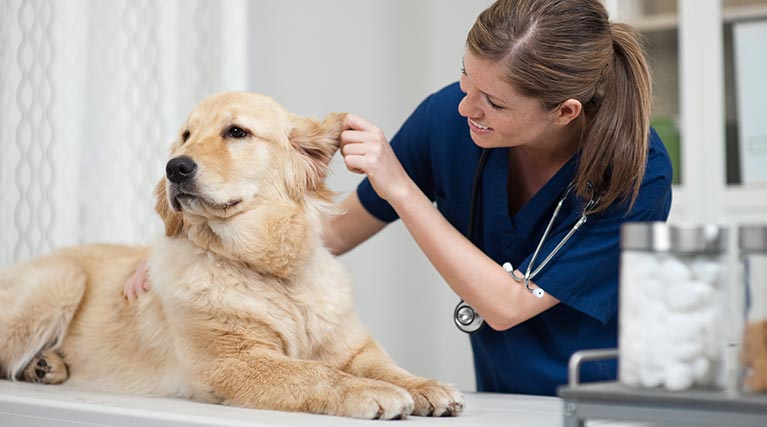Professional Tips for Family Pet Nutrition From a Veterinarian
Understanding the dietary demands of animals is essential for their overall health and wellness and long life. Vets recommend a well balanced diet plan that accommodates individual variables such as type, activity, and age level. With the wide variety of animal food alternatives offered, pet owners commonly find themselves browsing a landscape rife with false information and myths. As we discover vital tips from vet experts, it ends up being evident that appropriate nourishment is not merely about what is fed but involves a deeper understanding of each pet's one-of-a-kind needs. What crucial insights could change your approach to pet dog nutrition?
Understanding Nutritional Needs
Comprehending the dietary demands of animals is essential to guaranteeing their total health and well-being. Similar to people, family pets call for a well balanced diet plan that supplies crucial nutrients, including healthy proteins, fats, carbs, vitamins, and minerals. These nutrients play essential duties in numerous physical features, such as power manufacturing, immune feedback, and cells repair work.
Healthy proteins are crucial for development, repair work, and maintenance of body tissues - Veterinarian Greensburg. They are made up of amino acids, several of which are essential and must be obtained from food. Fats provide a focused resource of energy and are important for the absorption of fat-soluble vitamins. Carbohydrates work as a main energy source and can sustain digestive system wellness when they include fiber.
Minerals and vitamins are needed for metabolic processes and keeping overall wellness. Each family pet may have one-of-a-kind needs based upon elements such as age, type, task level, and wellness condition. It is vital to seek advice from a veterinarian to determine the certain dietary needs tailored to your family pet's individual needs, guaranteeing they receive ideal nourishment throughout their life stages. Correct understanding and attention to these dietary components can substantially add to a pet dog's durability and lifestyle.

Selecting the Right Food
It is crucial to think about variables such as age, wellness, size, and breed status when selecting a pet food. Elderly pets may profit from foods designed to deal with age-related concerns, such as joint health or weight administration.
When examining pet food choices, seek items that meet the Association of American Feed Control Officials (AAFCO) criteria, which ensure that the food offers full and well balanced nutrition. Components should be top notch, with real meat as the key resource of healthy protein. Avoid foods with excessive fillers, man-made ingredients, or byproducts, as these can diminish the total dietary value.
Consulting with a vet can give tailored suggestions based upon your pet dog's specific needs. Additionally, transitioning between foods ought to be done slowly to avoid gastrointestinal upset. By taking these actions, pet dog proprietors can make certain that they are providing their furry companions with the very best possible nourishment for a delighted and healthy life.
Typical Myths About Pet Food
Debunking mistaken beliefs surrounding pet food is crucial for guaranteeing optimal nourishment for our fuzzy buddies. One prevalent misconception is that all grain-free diet regimens are premium for family pets. In truth, grains can my site supply crucial nutrients and are not inherently unsafe. A well balanced diet plan can include grains, provided they are not creating any type of allergies or intolerances.

Furthermore, lots of pet dog proprietors think that "costs" or "all-natural" tags assure better. These terms are typically unregulated and do not always suggest remarkable dietary value. It is important to scrutinize ingredient checklists and dietary accounts instead.
Special Factors To Consider for Different Breeds
When it involves pet nutrition, special factors to consider should be taken into consideration for various breeds, as each type can have distinct dietary requirements and sensitivities. For circumstances, big types such as Excellent Danes and Saint Bernards are susceptible to bone and joint problems and may take advantage of diets developed to sustain joint health and wellness, frequently including ingredients like glucosamine and omega fats. Conversely, tiny breeds like Chihuahuas may call for higher calorie densities to fulfill their energy levels, demanding formulations that are abundant in nutrients yet lower wholesale.
In addition, certain types might be predisposed to particular wellness concerns, such as food allergic reactions or level of sensitivities. Breeds like Labrador Retrievers may fight with obesity, requiring cautious section control and a balanced diet to preserve a healthy and balanced weight. On the other hand, types such as Dachshunds might be more vulnerable to spine problems, motivating a need for diets that promote spine health and weight monitoring.
Eventually, understanding these breed-specific dietary needs is critical for pet owners. Consulting with a vet can help in selecting one of the most ideal diet tailored to an individual pet's age, breed, and health status, guaranteeing ideal nutrition and well-being.
Significance of Regular Veterinary Exams
Recognizing the one-of-a-kind dietary requirements of various types is just one element of accountable animal ownership; regular vet exams play a crucial function in maintaining overall health. These exams are necessary for very early detection of health issues, ensuring that any possible troubles are attended to before they become serious. Normal sees enable veterinarians to check your animal's weight, dental health and wellness, and crucial indicators, which are critical signs of overall health.
Furthermore, regular examinations enable vets to offer customized nutritional advice based upon your animal's specific health and wellness standing - Animal Hospital Greensburg. As animals age, their nutritional requirements might change, and modifications might be needed to avoid excessive weight or nutrient deficiencies. Precautionary care, including inoculations and parasite control, is also an essential component of these check outs, safeguarding your animal from numerous diseases
Along with physical assessments, these consultations provide a superb opportunity click now for family pet pop over here proprietors to talk about behavioral adjustments or concerns regarding their family pet's consuming habits. By focusing on normal veterinary check-ups, animal proprietors can ensure a longer, healthier life for their fuzzy friends, inevitably enhancing their quality of life.
Conclusion
To conclude, making certain optimal pet nutrition needs a detailed understanding of specific nutritional demands, ideal food selection, and awareness of prevalent myths. Unique factors to consider for numerous types must be accounted for, and regular veterinary check-ups play a vital role in keeping track of health and wellness and dietary adjustments. Sticking to AAFCO criteria and speaking with vets before making nutritional modifications will enhance the well-being of pets, inevitably adding to their long life and top quality of life.
With the wide variety of family pet food choices offered, pet proprietors often discover themselves browsing a landscape raging with false information and misconceptions. Each family pet may have unique needs based on elements such as age, breed, task level, and health standing. It is crucial to take into consideration aspects such as age, breed, dimension, and health and wellness standing when selecting an animal food. Senior pets might benefit from foods designed to deal with age-related issues, such as joint health or weight monitoring.
Comprehending the special dietary requirements of various breeds is just one aspect of liable animal possession; routine vet examinations play a vital function in preserving general health.